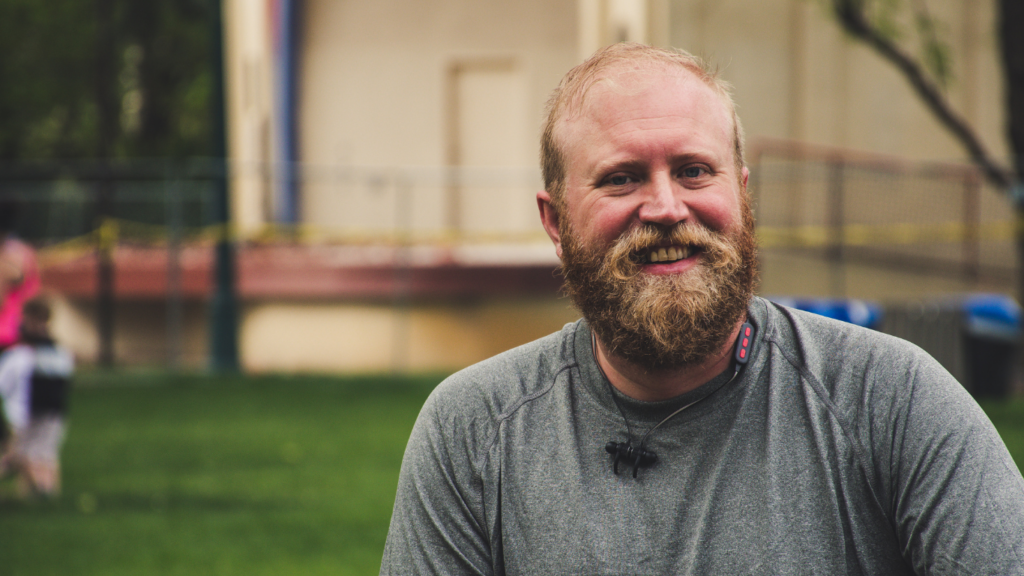Cocaine Addiction Treatment for Men

At Four Winds Recovery Center, we specialize in cocaine addiction treatment for men. Our dedicated team offers personalized, evidence-based care in a supportive environment for men’s unique recovery needs.
Surrounded by trees and accessible via public transportation, our addiction treatment center provides a tranquil setting where men can focus on healing and recovery from cocaine addiction and co-occurring mental health concerns
The Four Winds Recovery Difference
Cocaine addiction requires specialized care that acknowledges the biological, psychological, and social factors driving substance use.
At Four Winds Recovery Center, our addiction treatment programs stand out through:
Gender-Specific Programming: Tailored to address societal pressures and stigma men face, fostering a supportive brotherhood.
Licensed Clinical Team: Experienced therapists and addiction specialists trained in trauma therapy, cognitive-behavioral therapy (CBT), and dual diagnosis care.
Outpatient Flexibility: Structured programs (PHP, IOP, OP) allow men to maintain daily responsibilities while prioritizing recovery.
Holistic Support: Anger management, family therapy, and life-skills training to address root causes of addiction.
Continuum of Care: Seamless transition from intensive treatment to aftercare, ensuring long-term success. We offer ongoing support customized for every rehabilitation stage, from the first evaluation to aftercare.
The Impact of Cocaine Addiction on the Body
Cocaine addiction is a chronic, relapsing disorder characterized by the compulsive use of cocaine despite harmful physical, psychological, and social consequences.
It is classified medically as a stimulant use disorder, reflecting the powerful effects cocaine has on the brain’s reward system and the body’s central nervous system.
In metro Atlanta, cocaine addiction remains a critical public health issue, with men disproportionately affected due to societal expectations of self-reliance.
What Is Cocaine?
Cocaine is a powerful stimulant drug derived from coca plant leaves that’s illegal in the United States. When someone uses cocaine, it increases dopamine levels in the brain, preventing this neurotransmitter from being recycled and causing it to build up in the brain’s nerve cells.
This flood of dopamine into the brain’s reward circuit creates intense euphoria but disrupts normal interaction between neurons.
With ongoing use, the brain adapts to the presence of cocaine, becoming less sensitive to its effects. Users then require larger doses or more frequent use to feel high or avoid withdrawal symptoms, setting the stage for addiction.
An estimated 14% of Americans aged 12 and older have used cocaine at some point in their lives, illustrating the widespread nature of this problem.
Signs and Symptoms of Cocaine Addiction
Physical indicators:
Dilated pupils
Increased heart rate and blood pressure
Decreased appetite and weight loss
Runny nose or frequent nosebleeds
Insomnia or disturbed sleep patterns
Behavioral changes:
Increased energy followed by crashes
Financial difficulties due to spending on cocaine
Neglecting responsibilities at work, school, or home
Secretive behavior or lying about activities
Withdrawal from previously enjoyed activities and relationships
Psychological effects:
Intense cravings for cocaine
Anxiety, paranoia, or irritability
Mood swings
Depression during “crash” periods
Potential psychosis with heavy use
Understanding Cocaine Withdrawal
Cocaine withdrawal is the process your body and mind go through when you stop or significantly reduce cocaine use after developing a dependence.
Unlike withdrawal from substances such as alcohol or opioids, cocaine withdrawal is primarily psychological, but it can still be intensely uncomfortable and, in some cases, dangerous.
Symptoms Cocaine Withdrawal
Cocaine withdrawal occurs because chronic cocaine use alters the brain’s chemistry, especially the dopamine system responsible for pleasure and motivation.
When cocaine use stops, the brain struggles to regain balance, leading to a range of withdrawal symptoms.
These symptoms can begin even if some cocaine remains in the bloodstream and are often most severe in people who have used large amounts or binged for extended periods.
Common symptoms of cocaine withdrawal include:
Intense cravings for cocaine
Fatigue and excessive sleep or insomnia
Depressed mood and lack of pleasure (anhedonia)
Anxiety and irritability
Agitation and restlessness
Increased appetite
Vivid, unpleasant dreams or nightmares
Slowed thinking and movement (psychomotor retardation)
Muscle aches and general discomfort
Suicidal thoughts in severe cases
Unlike withdrawal from some other drugs, cocaine withdrawal rarely causes visible physical symptoms like vomiting or tremors, but the psychological symptoms can be severe and long-lasting.
Timeline of Cocaine Withdrawal Symptoms
Cocaine withdrawal typically unfolds in several phases, with the intensity and duration varying based on factors such as the amount used, frequency, duration of addiction, and individual health.
Crash Phase (1–3 days): After the last use, individuals often experience a “crash” marked by exhaustion, low mood, and intense cravings. Sleep may be excessive or, paradoxically, insomnia may occur. Anxiety and irritability are common.
Early Withdrawal (4–7 days): Symptoms intensify, with cravings, mood swings, and vivid dreams. Depression and dehydration can occur if self-care is neglected.
Peak Withdrawal (1–2 weeks): Symptoms are at their worst, especially psychological ones like depression, anxiety, and cravings. Physical symptoms such as headaches, muscle aches, and increased appetite may persist.
Protracted Withdrawal (2–4 weeks+): While physical symptoms begin to subside, psychological symptoms—especially cravings and mood disturbances—can linger. Some individuals may experience these symptoms for months, especially after long-term heavy use.

The Importance of Medical Supervision During Cocaine Withdrawal
Attempting to detox from cocaine without medical supervision can be risky and, in some cases, life-threatening. The psychological symptoms—especially depression, anxiety, and suicidal thoughts—can be severe, and the risk of relapse is high due to intense cravings.
Benefits of medical supervision include:
Safety: Medical professionals can monitor for complications such as heart problems, seizures, or severe depression.
Symptom Management: Medications and supportive care can help alleviate discomfort, manage cravings, and stabilize mood.
Mental Health Support: Access to counseling and therapy helps address the psychological aspects of withdrawal and reduces the risk of relapse.
Personalized Care: Treatment plans are tailored to individual needs, considering co-occurring mental health or medical conditions.
Continuity of Care: Medical detox is the first step in a comprehensive treatment plan, which may include therapy, support groups, and aftercare resources.
Medical detox can be provided in inpatient or outpatient settings, depending on the severity of addiction and the presence of other health issues. Inpatient detox offers 24/7 monitoring, which is especially important for those with a history of severe withdrawal or co-occurring medical conditions.
Outpatient detox may be suitable for those with milder symptoms and strong support systems.
Our Cocaine Addiction Treatment Approach for Men
At Four Winds Recovery Center, our comprehensive approach to treating cocaine addiction is designed to address both the physical and psychological aspects of dependence, ensuring that every individual receives holistic, effective care tailored to their unique needs.
By integrating medical, psychological, and social support, we empower our clients to build resilience, develop healthy coping strategies, and achieve lasting recovery.
Comprehensive Assessment
A comprehensive assessment to determine the degree of cocaine addiction and any mental health disorders. This personalized assessment forms the foundation of your individualized treatment plan, ensuring we address your specific needs and circumstances.
The assessment considers male-specific factors such as:
Patterns of cocaine use in high-pressure environments, social circles, or recreational settings.
The influence of masculine identity and societal expectations on substance use and help-seeking behaviors.
Co-occurring mental health conditions, such as anxiety, depression, or trauma, which are prevalent among men with cocaine addiction.
Previous attempts at treatment, relapse history, and unique barriers men may face in accessing or engaging in recovery programs.
Therapeutic Interventions
Our evidence-based treatment programs include:
Partial Hospitalization (PHP): Access to full-day therapy for high-need clients, including group sessions, CBT, and trauma processing.
Intensive Outpatient (IOP): Evening sessions for working professionals, focusing on relapse prevention and coping strategies.
Outpatient Program (OP): Weekly counseling to reinforce sobriety skills.
Individual Counseling: Our licensed therapists provide one-on-one sessions to address the underlying issues contributing to addiction, develop coping strategies, and set personalized recovery goals.
Men’s Group Therapy: We foster peer support and shared experiences through facilitated group sessions, creating a community of men who understand the unique challenges of cocaine recovery.
Family Therapy: We recognize the importance of healing family relationships damaged by addiction and involve loved ones in the recovery process when appropriate.
Medication Management: When appropriate, our medical professionals can provide medication-assisted treatment to help manage cravings and support recovery.
Evidence-Based Therapies
Trauma Therapy: Addresses underlying PTSD or emotional wounds contributing to addiction.
Anger Management: Teaches healthy emotional regulation to replace drug use.
Family Therapy: Repairs relationships and builds a supportive home environment.
By integrating these components, Four Winds Recovery Center is dedicated to creating a supportive and effective treatment environment for men facing cocaine addiction, empowering them to achieve lasting recovery and meaningful personal growth.

Four Winds Recovery’s Substance Abuse Programs for Men
At Four Winds Recovery Center, we offer a range of flexible, evidence-based treatment programs specifically designed for men seeking recovery from cocaine addiction. Our continuum of care allows clients to select the level of support and structure that best fits their unique needs, lifestyle, and recovery goals.
Each program is tailored to address the challenges men face in overcoming cocaine dependence, providing a supportive environment and a comprehensive suite of therapeutic services.
Below are our primary treatment options:
Intensive Outpatient Program (IOP)
Offers a structured treatment schedule, typically three to five days a week for several hours daily.
Designed for men who need comprehensive therapy and support but do not require round-the-clock supervision.
Focuses on individual and group therapy, psychoeducational groups, anger management, and relapse prevention, helping clients integrate recovery strategies into everyday life.
Day and evening IOP options accommodate different schedules, allowing men to receive intensive care without disrupting work or family responsibilities.
Partial Hospitalization Program (PHP)
The most intensive outpatient option requires attendance five to seven days a week.
Ideal for men who need significant support early in recovery but can live at home or in a sober living environment.
Includes a full spectrum of therapeutic interventions: individual therapy, group therapy, medication management, trauma therapy, family therapy, and holistic therapies such as experiential and animal-assisted activities.
Provides a highly structured, campus-like setting to foster stability and focus during the critical early stages of recovery.
By offering these diverse and adaptable treatment options, Four Winds Recovery Center is committed to supporting men at every stage of their recovery journey from cocaine addiction.
Our programs are designed to empower clients to reclaim their lives, develop healthy coping skills, and achieve lasting sobriety in a supportive, male-focused environment.
Aftercare Planning
Recovery continues long after formal treatment ends. We develop comprehensive aftercare plans that include:
Ongoing support group recommendations
Relapse prevention strategies
Community resource connections
Continued therapy options
Alumni program participation
Research shows that longer engagement with treatment significantly improves the ability to maintain sobriety long-term.
Our aftercare programs are designed to provide continued support as you transition back to everyday life.
We Extend Our Doors to You
Cocaine addiction doesn’t have to control your life. At Four Winds Recovery, we’re committed to helping men in the Atlanta area reclaim their health, relationships, and future. Our compassionate team is ready to guide you through every step of the recovery process.
The path to overcoming cocaine addiction may not be easy, but with the proper support and evidence-based treatment, lasting recovery is possible.
Take the first step toward lasting freedom from cocaine addiction. Contact us today at 404-957-6765 to speak confidentially with our admissions team and learn how our specialized men’s treatment program can help you or your loved one.
